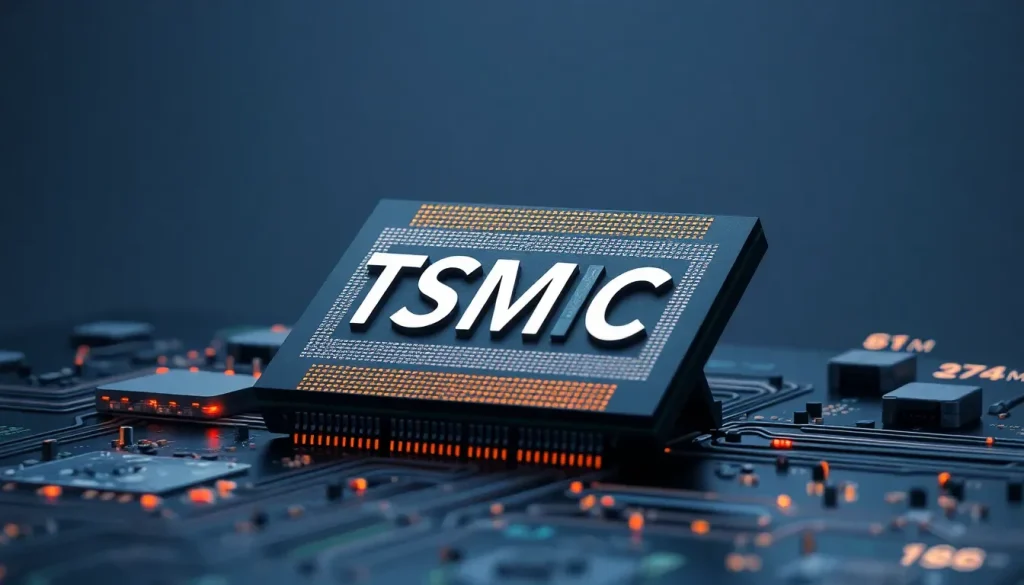China labels companies as untrustworthy for leaking TSMC Huawei use

In the complex landscape of global technology and semiconductor production, the struggle for dominance has taken a dramatic turn. The latest developments show how China has responded to international pressures by blacklisting companies that have aided in exposing its technological strategies. This situation highlights not only the geopolitical tensions surrounding technology but also the intricate web of relationships among tech companies, nations, and regulatory frameworks.
The stakes are high as nations vie for leadership in artificial intelligence (AI) and semiconductor manufacturing. Understanding the motivations behind these actions requires a deeper look into the dynamics at play, especially regarding companies such as Huawei and TSMC.
- China's response to reported dependencies on TSMC technology
- The implications of the blacklisting of companies aiding U.S. interests
- Impact on the semiconductor market and the global technology landscape
- Companies on China's unreliable entity list: Who are they?
- China's strategy to circumvent technology bans
- The broader implications for global technology competition
China's response to reported dependencies on TSMC technology
China has been facing significant challenges in acquiring advanced hardware necessary for cutting-edge technology. The restrictions imposed by the United States have effectively limited its access to essential chips and manufacturing equipment. These measures were designed to curb China's capabilities in sectors like artificial intelligence, which the U.S. perceives as a direct threat to its global standing.
Despite these hurdles, China's resilience is evident. The nation has embarked on a mission to develop its own semiconductor technology and explore alternate channels for acquiring U.S. technology through third-party countries. A recent development in this ongoing saga involves TechInsights, a company that has been added to China's unreliable entity list. This designation follows their role in revealing Huawei's usage of TSMC technology in its Ascend 910B chips.
As the geopolitical landscape shifts, the implications of these actions extend beyond immediate business operations. China’s strategy aims to ensure its technological independence while responding assertively to perceived betrayals. The situation underscores the urgency felt by Chinese firms to innovate and compete on a global scale.
The implications of the blacklisting of companies aiding U.S. interests
China’s decision to blacklist companies that reported on its technology dealings serves as a stark reminder of the lengths to which nations will go to protect their interests. This move signals a retaliatory stance against organizations perceived as traitors to national goals.
- TechInsights: An analytical firm that provided critical information about Huawei’s chip technology.
- Dedrone: A technology company focused on drone detection and mitigation.
- Elbit Systems: Engaged in defense electronics and aerospace systems.
- BAE Systems: A prominent player in the global defense and aerospace sector.
- Epirus: Known for its innovative solutions in robotics and anti-drone technologies.
These companies, while essential in their respective fields, now find themselves on the wrong side of China's technological ambitions. The blacklist serves as a warning to others that collaborating with U.S. interests to undermine Chinese companies can lead to severe repercussions.
Impact on the semiconductor market and the global technology landscape
The ramifications of these actions ripple through the semiconductor market. As China focuses on developing its own capabilities, companies like SMIC (Semiconductor Manufacturing International Corporation) have gained prominence. Their rapid advancements in semiconductor production have raised concerns in the U.S. about potential competition.
Furthermore, the incident involving Huawei's Ascend 910B chip, which utilized TSMC's technology without proper oversight, has highlighted the vulnerabilities in the global supply chain. TSMC’s decision to halt shipments to Huawei following the revelation demonstrates the complex interplay between regulatory compliance and market demands.
Many analysts speculate that this situation may lead to a bifurcation of the technology market, with countries aligning more closely with either the U.S. or China, exacerbating existing tensions.
Companies on China's unreliable entity list: Who are they?
The companies listed as unreliable entities include some of the most influential players in the defense and technology sectors. Their inclusion on China's blacklist raises questions about the future of international collaborations and the sharing of technology.
| Company | Industry | Reason for Blacklisting |
|---|---|---|
| TechInsights | Semiconductor Analysis | Reported Huawei's use of TSMC technology |
| Dedrone | Robotics | Assisted U.S. interests in drone technology |
| Elbit Systems | Aerospace | Collaboration with U.S. defense initiatives |
| BAE Systems | Aerospace | Involved in U.S. military contracts |
| Epirus | Robotics | Developed technologies for U.S. defense |
As the blacklisted companies navigate this precarious situation, their future collaborations with Chinese entities remain uncertain. The growing divide between U.S. and Chinese tech industries is set to reshape the competitive landscape in profound ways.
China's strategy to circumvent technology bans
Despite the restrictions, China continues to explore avenues to acquire the necessary technology. The nation has increasingly turned to third-party countries to obtain chips and machinery, demonstrating a sophisticated approach to circumventing U.S. sanctions.
For instance, the case of Sophgo, which procured chips from TSMC for Huawei, underscores the lengths to which companies will go to maintain technological flow. This strategy reflects a broader trend of adapting supply chains to bypass direct restrictions while still accessing critical technology.
As China strengthens its domestic semiconductor industry and seeks international partnerships, the implications for global trade and technology dynamics will be significant. The ongoing tug-of-war between the U.S. and China will undoubtedly influence international policies and alliances in the tech sector.
The broader implications for global technology competition
The events surrounding Huawei, TSMC, and the subsequent blacklisting of companies illustrate the precarious nature of global technology competition. As nations increasingly view technology as a matter of national security, the risks associated with international collaborations grow.
This evolving landscape may lead countries to reconsider their dependencies on foreign technology, prompting a push for greater autonomy in critical sectors such as AI and semiconductors. The implications extend far beyond business; they encompass issues of national security, economic stability, and international relations.
As the situation develops, the global tech industry must brace for a future characterized by fragmentation and strategic competition, with nations vying for technological supremacy in an increasingly polarized world.
For further insights into the ongoing developments, check out this relevant video that explores the current state of U.S.-China relations in technology:




Leave a Reply